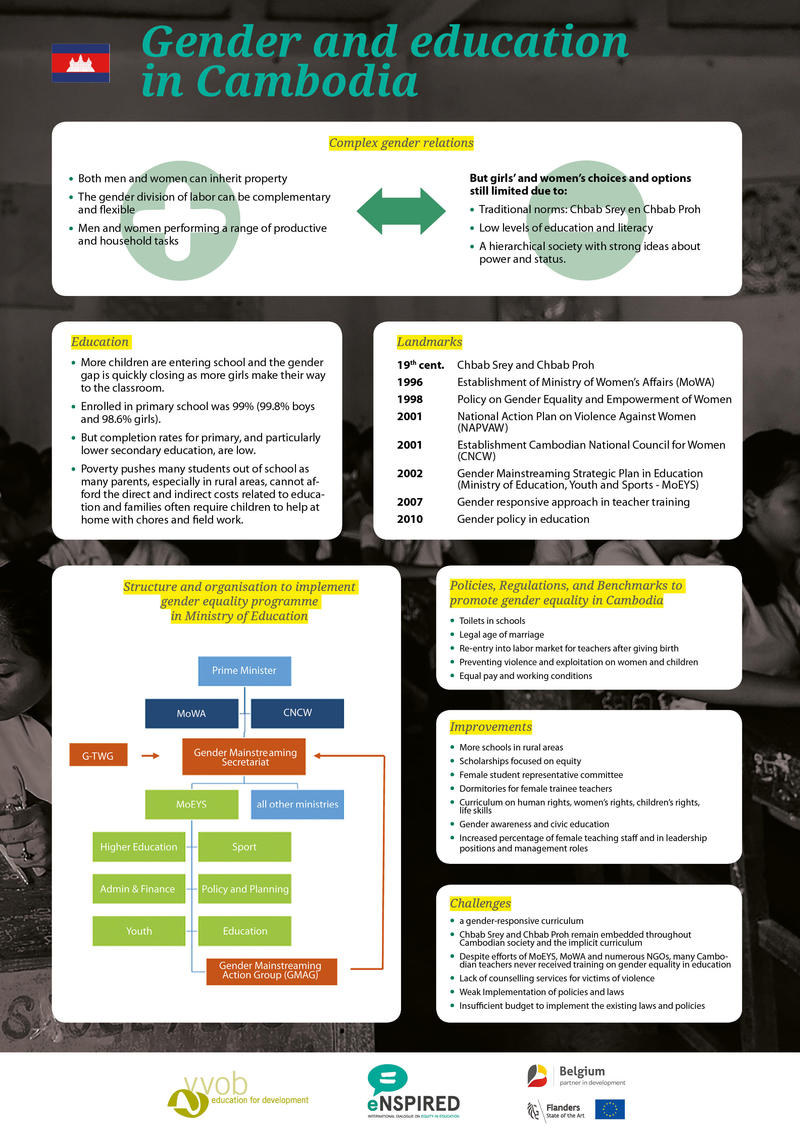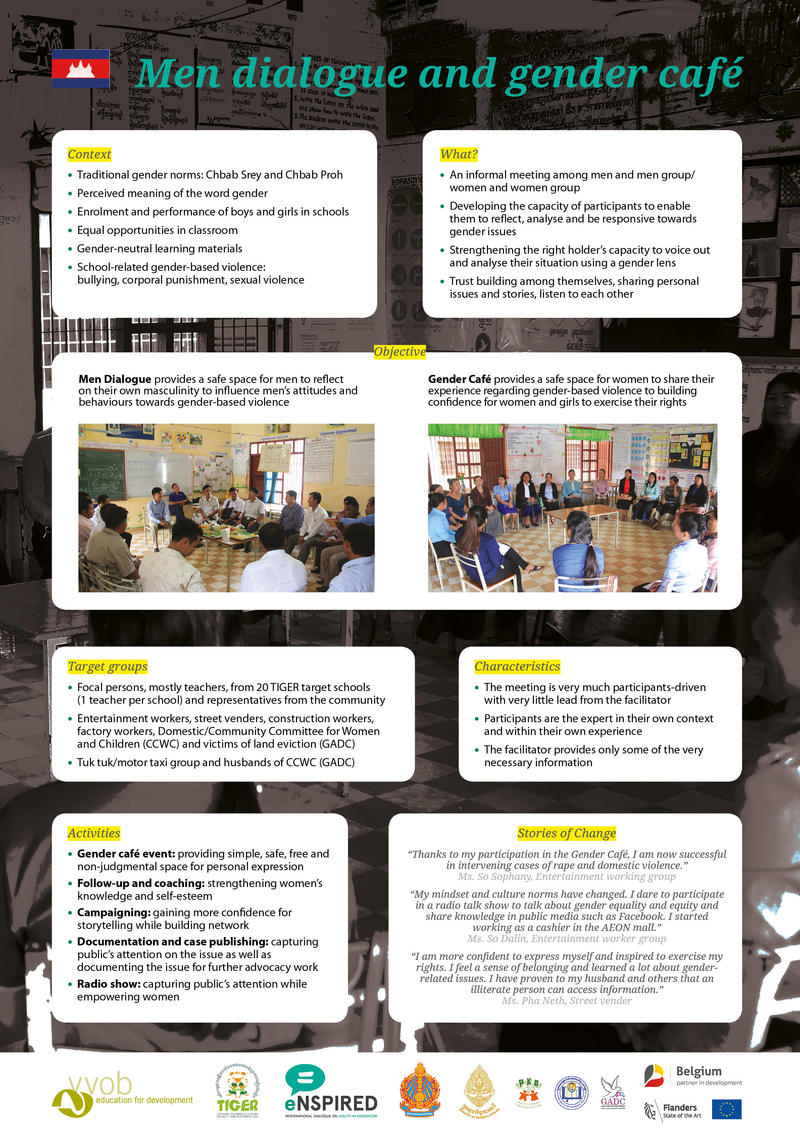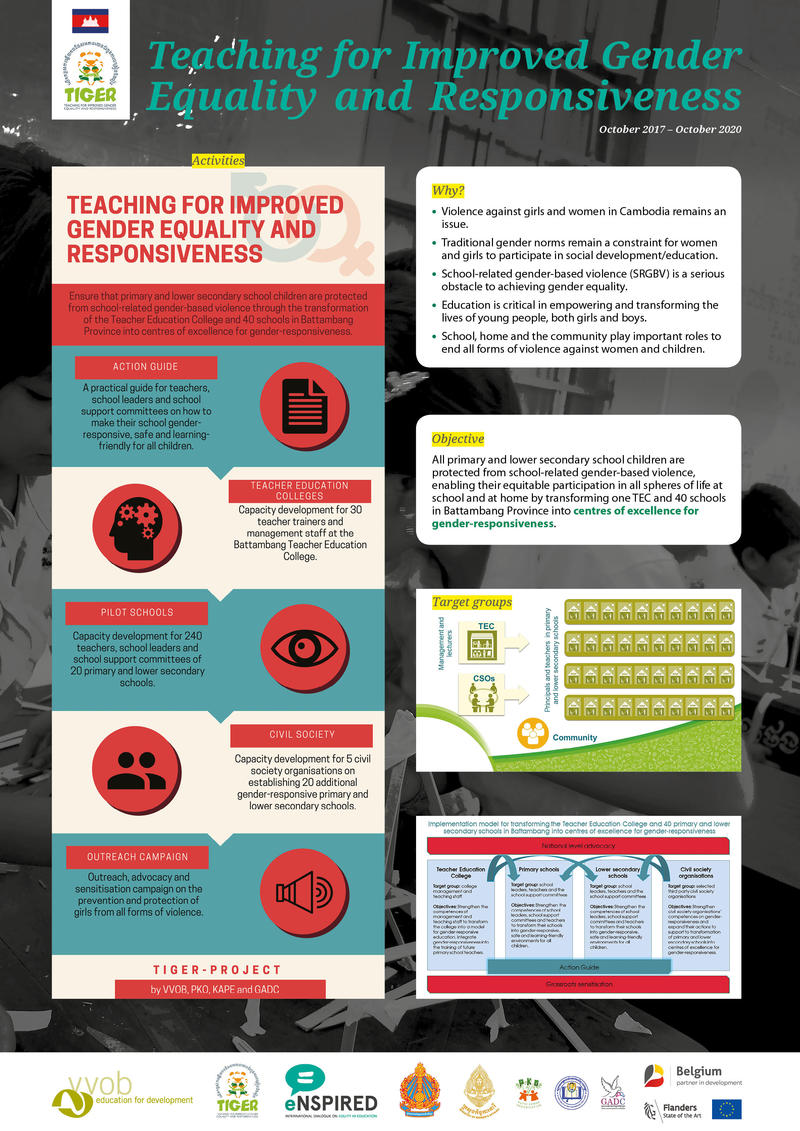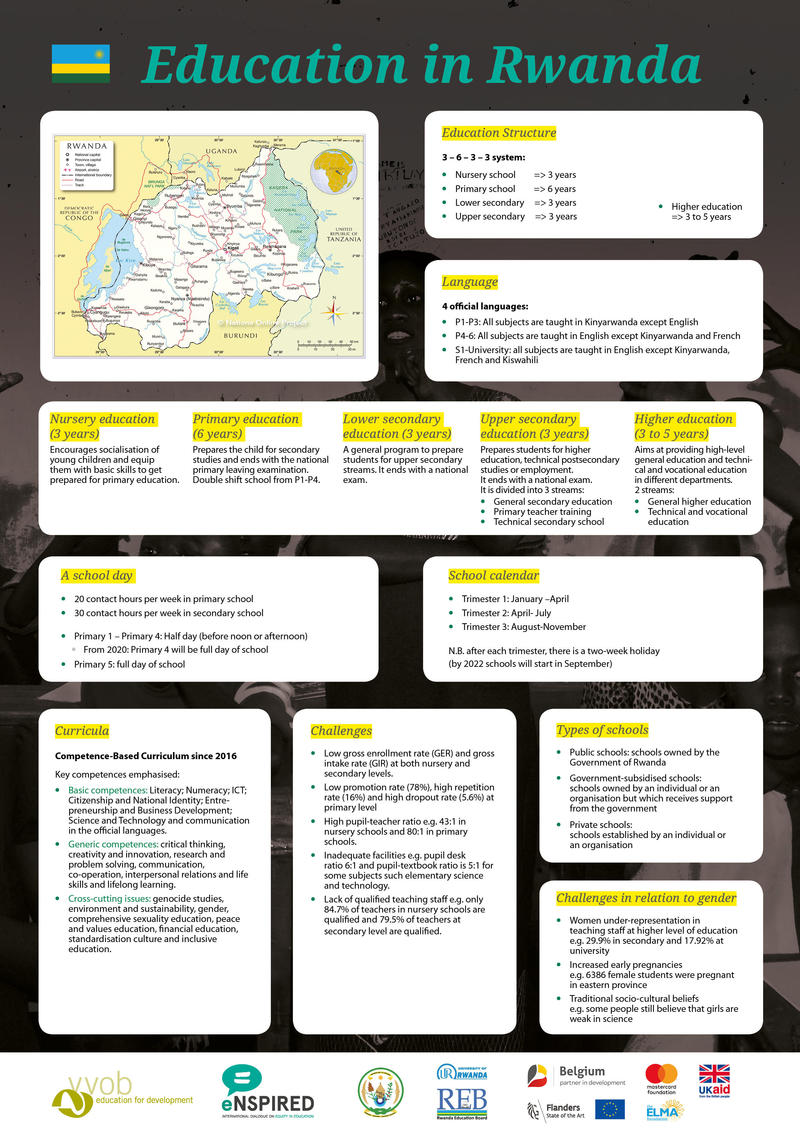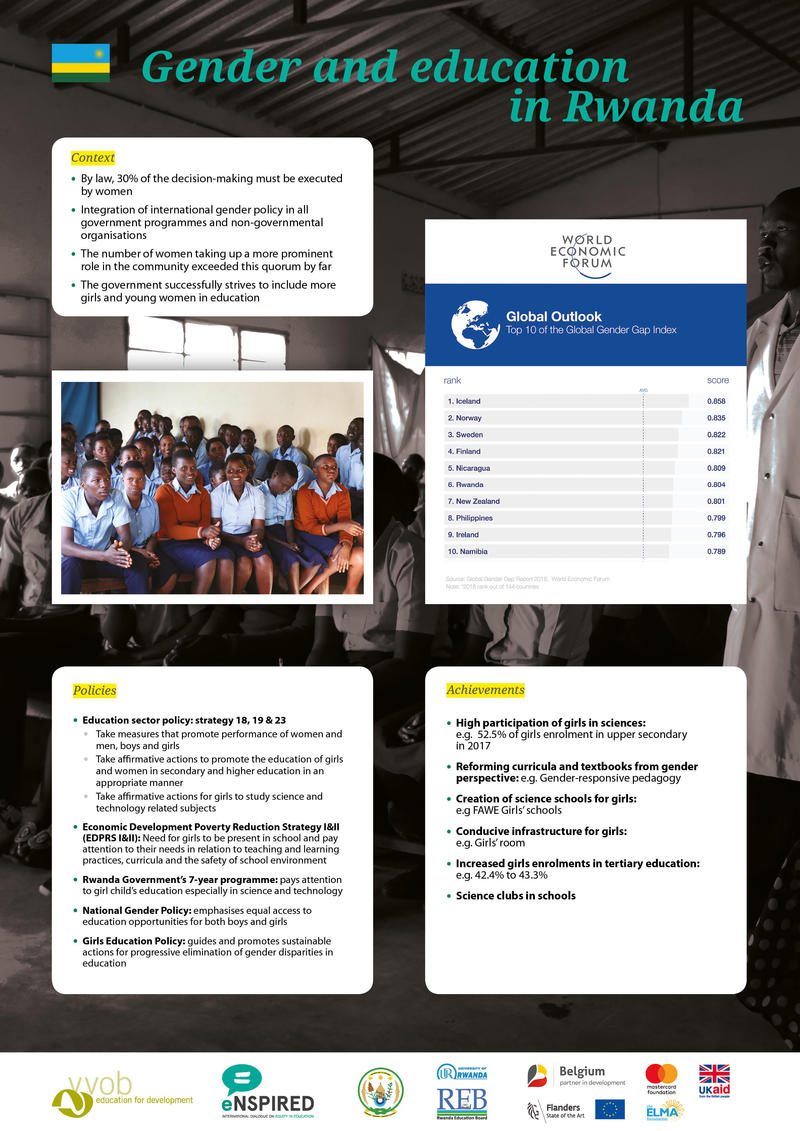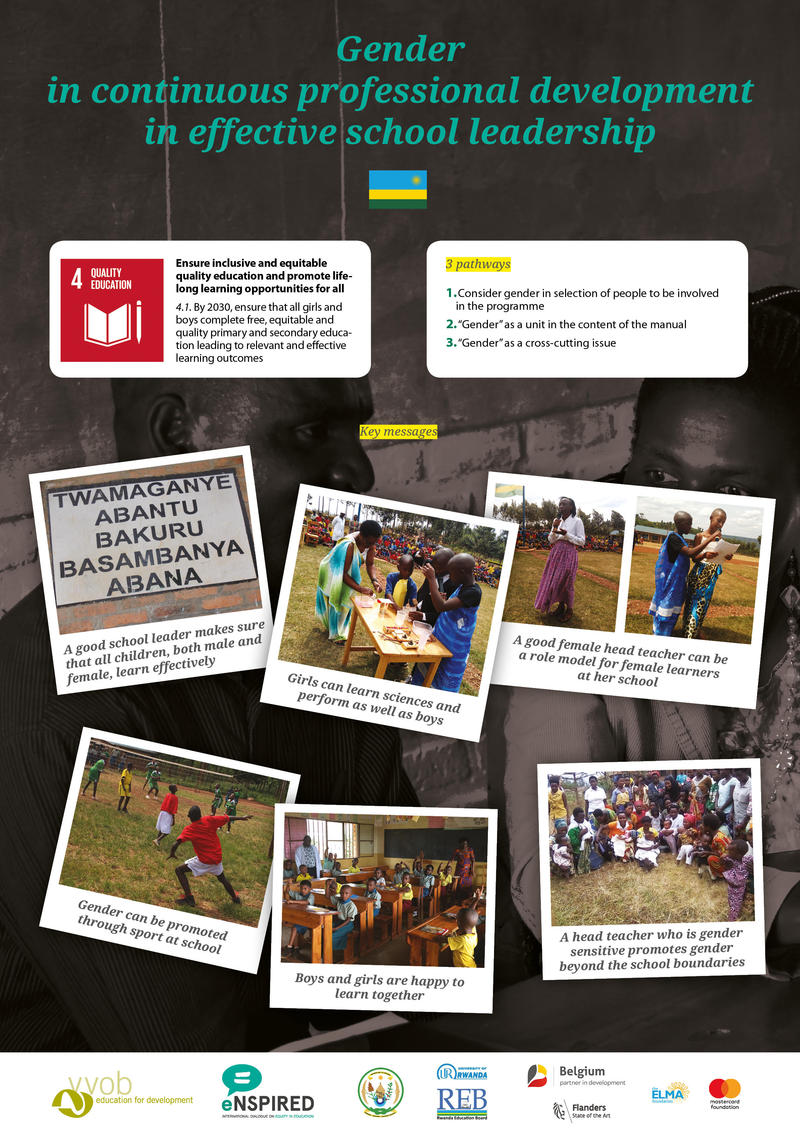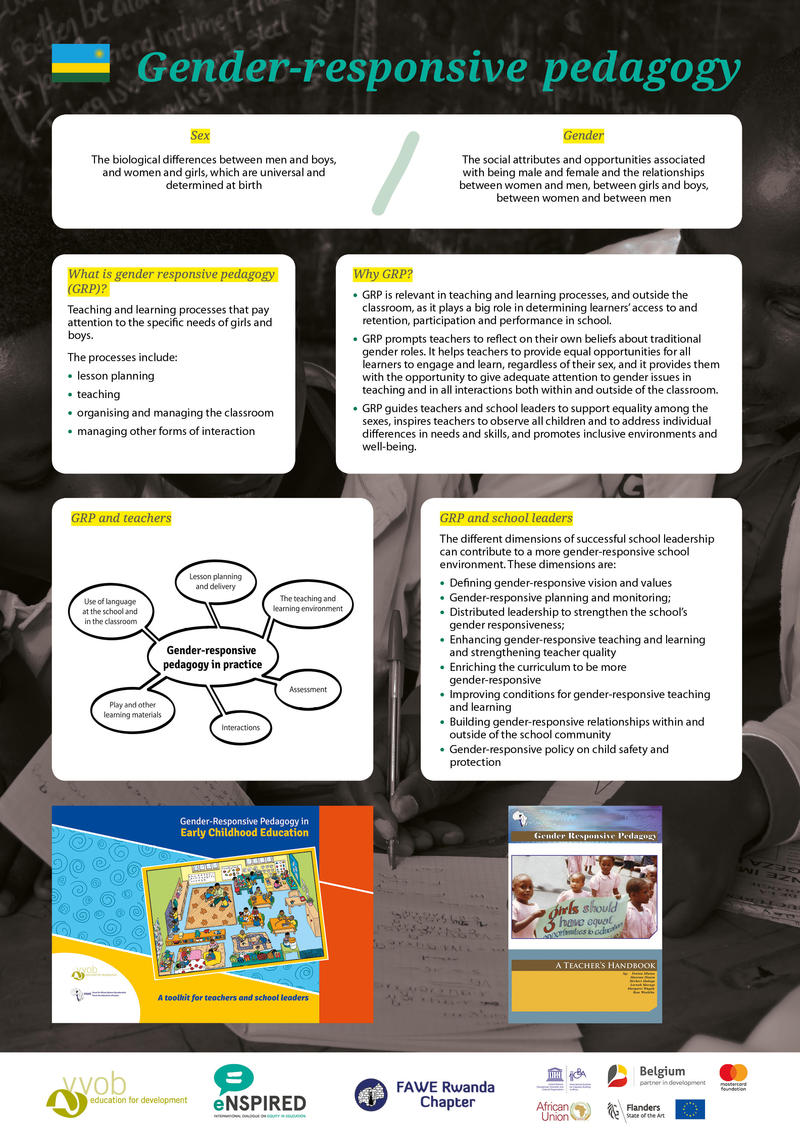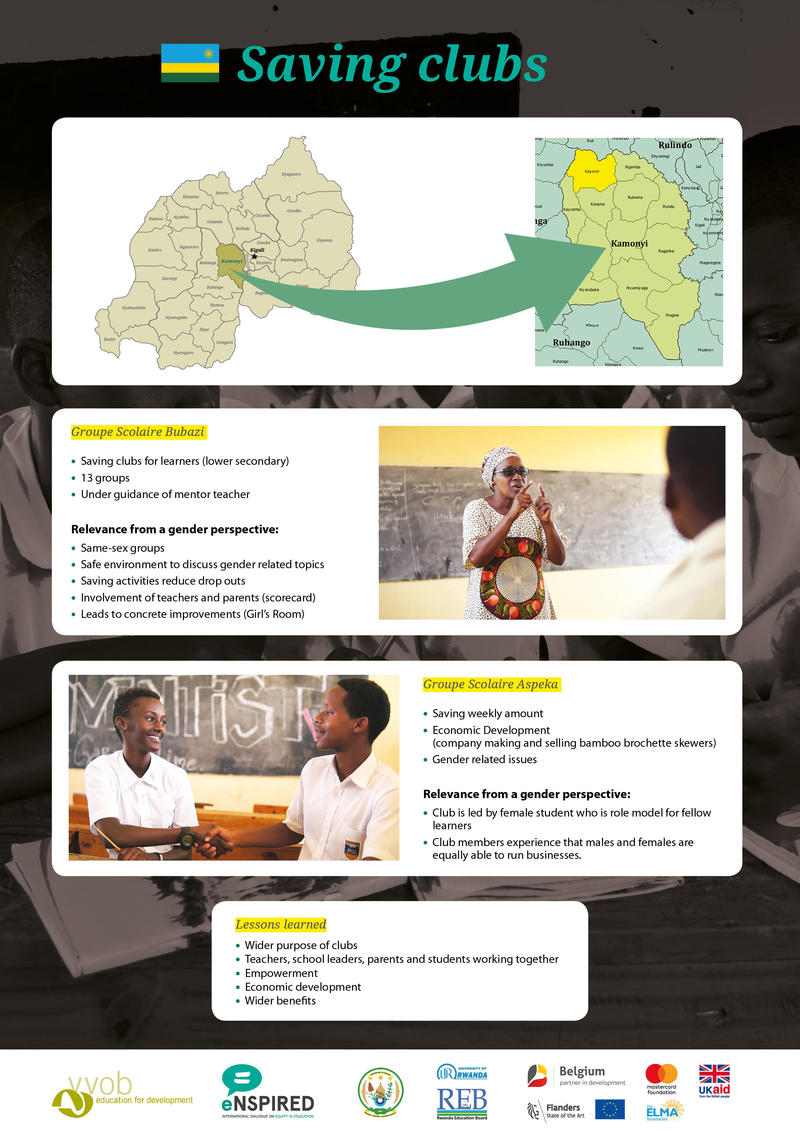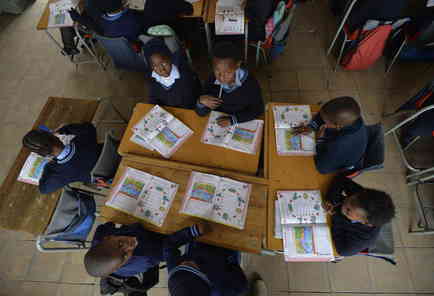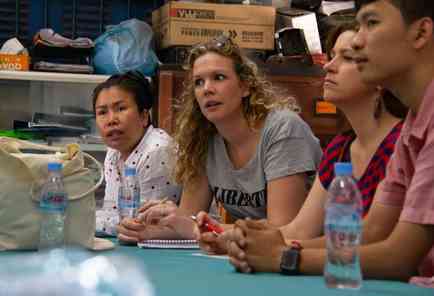Throwback to an international learning week
After months of preparations, the time finally came for our friends from Cambodia and Rwanda to get on a plane to the capital of Europe for our international learning week on gender and education. Look back on an inspiring week about tackling gender disparities in education around the globe.
Why gender?
In Belgium, gender is not a part of the final learning outcomes of compulsory education. Teacher trainers hardly spend any time on the subject in class. Because of equal participation levels in education and better school performance of girls, we often wrongfully assume that gender challenges do not apply to Belgium. Yet boys are more often referred to special needs education and more likely to fall behind or to drop out of school without a degree. It is about time we put gender on the education agenda once and for all.
This year we gathered international expertise on education from our partner countries Cambodia and Rwanda. Colleagues Maly Sun and Chanveasna Chin (VVOB office in Cambodia) travelled to Belgium accompanied by Satya Roeurn from VVOB’s partner organisation Gender and Development for Cambodia (GADC). Our colleagues from Rwanda Chantal Dusabe Kabanda and Simon De Schutter brought our friends Dr Philothère Ntawiha (University of Rwanda – College of Education (URCE)) and Joséphine Kobusingye (Forum for African Women Educationalists (FAWE) Rwanda) along to Belgium. Their knowledge and skills contributed to the success formula for an inspiring exchange of good practices.
Scroll all the way down to watch our inspiring videos and find all downloadable materials.
Passing by our colleagues of SchoolLinks
On Monday our colleagues from SchoolLinks, the VVOB programme that connects Flemish schools with a partner school in the global South, invited our international delegation for an exchange on approaching gender challenges at school. The exercise opened everyone’s eyes and minds. Participants found new ways to implement gender-responsive pedagogy at their schools and to ban gender stereotypes from their classrooms. "This exercise opened my eyes and made me realise how I subconsciously fall into the trap of stereotypes when I’m standing in front of a class," a teacher reflected afterwards. "From now on I’ll think twice before asking which strong boys can help me move a desk!"
Embracing our partners
Because exchange is key for the eNSPIRED-programme, on Tuesday we sent each member of our international delegation on the road. They each spent a day in the company of one of our partners as an introduction to the Flemish education system and its gender issues.
It’s all about gender
On 20 and 21 March we happily welcomed teacher trainers, students and teachers for two inspiring days on gender challenges in Cambodia, Rwanda and Belgium. The gender issues of each of the represented countries were introduced by the delegation during one of the introductory gender talks, after which all participants joined the workshops of their choice.
“Gender is not just a Cambodian or Rwandese issue, but a global one. The time has come to start a debate on this subject and open doors for tolerance."
Gender, it’s all in your head
Rwanda has come a long way on gender equity. Still, the country is confronted with high drop-out rates for girls. Many of them will never graduate secondary school. Reasons range from a high number of teenage pregnancies, to traditional gender norms and the under-representation of women and female role models in higher education.
“It’s only by involving everyone actively in the debate, that you can succeed in driving out gender stereotypes from your school.” Philothère and Chantal share their methods to integrating gender in education by training school leaders and other education professionals. According to them, this is the key to success. “Make gender a part of all aspects of your professional trainings, involve both male and female participants and last but not least, take their individual learning needs into account.”
“It wasn’t easy to think of concrete examples or answers for some of the questions. That encourages us to think out of the box.”
Simon’s group took a closer look at the Rwandese Saving Clubs, where boys and girls look for answers to gender challenges they face. After dividing his participants into two groups, Simon gave them a taste of how Saving Clubs bring Rwandese learners closer together, with a mini enterprise as a platform for self-development.
“Fascinating to see how a Saving Club can contribute to more gender equity by bringing boys and girls closer together.”
Joséphine elaborated on how FAWE implements gender responsive pedagogy (GRP): “You have to bend a tree while it’s still young. Thanks to GRP we can prevent children from becoming victims of circumstances, because gender basically is all in your head.”
“Open your mind, change your mentality and educate children properly, because they are the future of this world!”
Go TIGER!
Traditional gender norms are engrained in Cambodian society and school-related gender-based violence (SRGBV) is a daily hazard for girls and young women. With the TIGER programme, VVOB and her local partners join forces to guide teachers towards GRP.
The workshop of our Cambodian colleague Chanveasna elaborated on the Gender Action Guide and the accompanying digital application to make teacher trainings and additional trainings for teachers and school leaders more gender responsive.
“Only by implementing the Action Guide in policies and teacher trainings you can make a sustainable change.”
Men Dialogues and Gender Cafés are conversational methods to discuss gender and create awareness on the subject. These informal gatherings for certain communities such as a school community offer a safe environment to interact on gender. Maly and Satya explained how to maximise their effect.
“Talk constructively about the impact of gender on the (work)life of participants and question gender stereotypes without pointing fingers.”
Hungry for more inspiration
During the lunch break, the Gender Expo offered ways to maximise participants’ time with eNSPIRED. The centre of Expertise on Gender, RoSa vzw, popped up a library, a journalist from Klasse, a magazine for teachers, shared her stories about her encounters with educationalists in Cambodia. Development platform Educaid.be elaborated on its website on TVET and girls while our friends from UCOS explained their CHanGE-project. Our VVOB-co-workers spent their lunch demonstrating the GRP4ECE toolkit ('gender-responsive pedagogy for early childhood education').
An inspiring debate
To sum up the learning week, we invited a gender expert, a student and a teacher for a debate on international gender challenges.
As an advocate for the LGBT+ community, Kaj Poelman from çavaria strives for equal rights for transgenders, gays and lesbians. Over 90 percent of the LGBT-students in Belgium and five other European countries is confronted with homophobia at school. “On top of that, a significant amount of people admit they would have chosen a different career path if they would have been born with the other sex. A real eye opener on how gender roles still influence our society and education system.” A reality to which mechanic teachers Lieselot Van Gysel can relate. Lieselot is the first European Comission TVET-ambassador in Belgium, acting as a role model for young girls in STEM. “For as long as I can remember I was the only girl in my class and I only had male teachers when I was a student in mechanics. As a young girl it would have been nice to have a female role model to look up to.”
Linde Goossens is currently studying to become a history teacher at the Vrije Universiteit Brussel. As an active member of the UCOS project CHanGE, she is committed to gender equity and sexual and reproductive rights. With experiences from a project she worked on in India, she illustrated a broader picture on gender. After the introductory panel talks, we opened up the conversation tables where participants could reflect on SRGBV, GRP and gender-responsive study choice guidance.
Moderator and respected journalist Xavier Taveirne assembled the results from the dialogue tables and linked them back to our panellists. “Raising awareness on gender might not seem that important at first sight, but it is a first important step towards substantially changing people’s lives. Involve your colleagues and educate yourselves to master gender-responsive reflexes. Also, never underestimate the importance of male and female role models to show boys and girls they can be whatever they want to be when they grow up. Make them feel safe at school and guide them gender consciously in their study choice.”
The road ahead
The end of the academic year 2018-2019 is closing in on us. Time for eNSPIRED to close the books on gender in education. Thanks to our guest lecture in November and a successful edition of our learning week, the subject of gender has been rigorously studied. With another academic year on the horizon, we shift our focus to a different challenge in education. Keep an eye on our website and social media to find out all about next year’s theme!
Saving Clubs
Gender mainstreaming in the Continuous Professional Development of School Leaders
Posters

